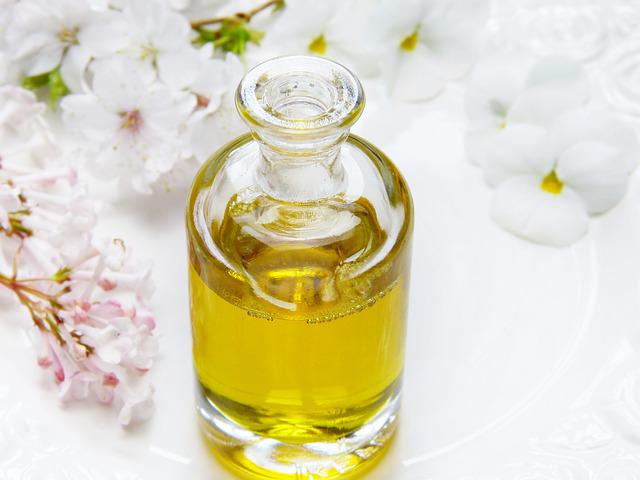Summer Skin Care Routine: Daytime & Night-Time
Last Updated 7 months ago:
It’s a known fact that your skin is your identity because when you appear in public, people will notice the condition of your skin. Having blemishes on your skin can lower your self-confidence and self-esteem, whereas flawless skin will always boost your confidence.
All dermatologists in Louisville, KY, agree that many skin diseases can be prevented. If you take proper care of your skin, you’ll easily ward off a lot of skin problems. Dry skin is prone to various issues. So, you should always moisturize your skin adequately. Typically, dry skin can lead to accelerated signs of aging. Moreover, some individuals with persistently dry skin may explore alternative remedies, like peptide injections, which aim to replenish essential skin proteins and enhance moisture retention.
The weather is hotter in summer and your skin will need more attention then. Therefore, it is essential to follow the skincare routine outlined below. They are recommended by highly experienced specialists in dermatology in Louisville. The routine is made of simple tips but when you apply the tips consistently, the results can be phenomenal.
Contents
1. See Louisville Dermatology Specialists Regularly
While a lot of people go for medical checkups regularly, it’s rather unfortunate that they often don’t prioritize visiting a dermatologist. Some people only visit a dermatologist when they notice a skin issue. To maintain healthy skin during summer, it is important to have your skin examined by a dermatologist.
Even if your skin has no problem, it’s still important to go for a dermatological checkup at least once a year. This way, you’ll always avert some skin diseases even before they become obvious.
2. Apply Cleansers Regularly
According to top dermatologists in Louisville, cleansing is the best healthcare tip to apply to your skin. Cleansing helps remove dead skin cells, excess oil, sebum, and dirt from your skin. Hence, you may want to start your routine by cleansing your skin.
Furthermore, some modern cleansers also have moisturizing properties. With such cleansers, you can cleanse and moisturize your skin simultaneously. You could also apply it to your skin right before you go to bed. It will help repair and rejuvenate your skin while you sleep.
3. Exfoliate Your Skin
It is important to exfoliate your skin at least once every week. This helps to remove tough dead skin cells that may be difficult for your cleanser to uproot. In addition, it helps to unclog your pores. According to Louisville dermatology specialists, every time you apply cream or lotion to your skin, some of it seeps into the pores.
Over time, the pores will get clogged, preventing cleansers from penetrating the skin. This is one of the reasons to exfoliate your skin once or twice a week. Opt for gentle exfoliators, as harsh ones can over-exfoliate your skin and cause irritation.
4. Tone Your Skin
Your skin must have a balanced pH level all the time. If it’s too acidic, you risk a chance of developing some inflammatory skin conditions like acne, eczema, and more. On the flip side, if your skin is too alkaline, it may look red, dry, and flaky. So, it is necessary to keep the pH level of your skin balanced.
Toning your skin can help balance its pH level. In addition, toning your skin could also close up your skin pores. Remember, open pores get clogged more easily. Certain Louisville dermatologists recommend alcohol-free toners that contain hydrating ingredients.
5. Moisturize Your Skin Regularly
This is one of the most important skincare tips. You can never overemphasize the importance of moisturizing your skin. Leaving your skin dry for an extended period can contribute to the development of various skin conditions. Hydrating your skin is important in winter, but much more important in the summer months.
You’re good with an oil-free moisturizer. Thankfully, many creams and lotions now come with hydrating ingredients. Dermatology associates in Louisville recommend using a moisturizer with SPF, especially since you’ll be exposed to the sun on a daily basis. You need effective SPF to protect your skin from the UV rays of the sun. This leads to the next tip.
6. Apply Sunscreen
While it’s fine to use a moisturizer with SPF, it is more effective to apply dedicated sunscreen. It will protect your skin better and longer. Apply it to all the areas of your body that will be exposed to the sun. Top Louisville dermatologists usually recommend sunscreen with an SPF of 30 or higher.
It’s important to inform you that the effect of sunscreen wears off with time. So, if you intend to stay outdoors for several hours, you may want to reapply every two hours. Apply it to all the parts of your body that are exposed to the sun, including your legs, feet, arms, neck, and face.
7. Hydrate Yourself
It is important to drink plenty of water to keep your body hydrated. Your skin will also benefit from the hydration. The more water you drink, the more your skin will get hydrated. It is needless to remind you of the dangers around dry skin.
8. Spend Less Time Under the Sun
While your clothes and sunscreen may shield you from the rays of the sun, it can never be compared to staying away from the sun totally. Therefore, it is advisable not to spend more time in the sun than necessary. If you’re outdoors, try to stay in the shade whenever possible. Moreover, no sunscreen can protect you from the scorching effect of humidity and heat. So, you’re better off staying away from the sun.
9. Give Your Skin Some Post-Sun Care
If for any reason beyond your control, you have stayed in the sun for a prolonged period, you need to soothe your skin with after-sun gel or lotion. If you experience sunburn, apply hydrocortisone cream to the affected area. Aloe Vera gel can provide relief as well.
Conclusion
To take proper care of your skin in summer, dermatology specialists expect you to cleanse, exfoliate, tone, and moisturize your skin regularly. In addition, you should also drink a lot of water to hydrate yourself and apply sunscreen to your skin before going outdoors.
Finally, spend less time in the sun if you can, and give your skin some post-sun care, each time you come back home from the sun.






